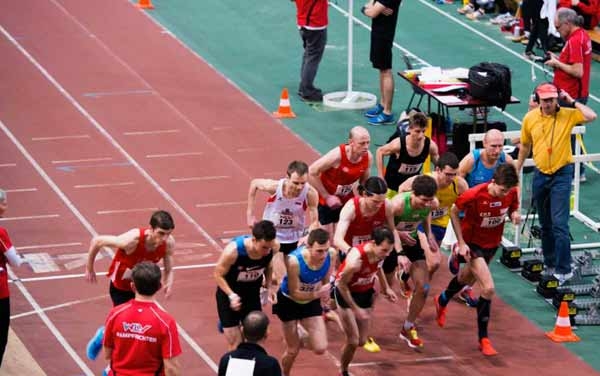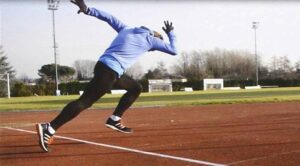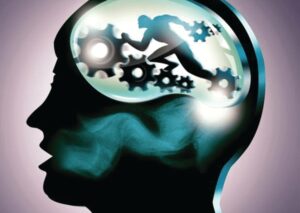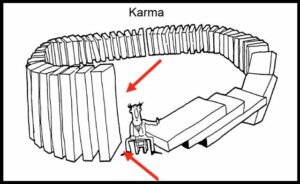
ROMA – L’altelta non è solo, è affiancato dall’allenatore che dovrebbe conoscere le sue potenzialità, i suoi punti di forza e di debolezza, dovrebbe costruire con l’atleta un progetto di obiettivi raggiungibili, stimolanti, da rivalutare all’occasione, dare feedback adeguati, spiegare le sedute di allenamento, l’importanza del gesto sportivo, il significato, raccontare aneddoti, far parte della storia sportiva dell’atleta, condividere momenti di gioia e sofferenza, di vincite e di sconfitte, essere disposto ad ammettere di aver fatto un errore, di aver preteso, di aver sottovalutato, di non aver considerato.
In che modo lo sport ha contribuito al tuo benessere? “Postivamente, mi sento molto meglio da quando faccio sport.”
Come hai scelto il tuo sport? “La mia famiglia fa anche questo sport e in un primo momento mi sono allenato con loro.”
Nel tuo sport quali sono le difficoltà ed i rischi, a cosa devi fare attenzione? “Non credo che ci siano molti rischi nella corsa, ma se si è ambiziosi si deve fare attenzione al superallenamento.”
Quali sono le condizioni fisiche o ambientali che più spesso ti hanno indotto a fare una prestazione non ottimale? “Quando ero più giovane era un problema quando ero il favorito in una corsa importante perché non mi piace la pressione, ma ora posso affrontarla. Se mi sento fisicamente molto forte nel momento della gara non ci sono problemi.”
Cosa e quali persone hanno contribuito al tuo benessere nello sport o alla tua performance? “Il mio allenatore che fa i migliori programmi di allenamento, i miei amici che mi stanno sostenendo durante le mie competizioni e la mia famiglia.”
Qual è stata la gara della tua vita, dove hai sperimentato le emozioni più belle? “Il campionato indoor austriaco del 2016 nei 3000m dove avevo vinto partendo da perdente.”
Quali i meccanismi psicologici ritieni ti abbiano aiutano nello sport? “Quando sono molto nervoso prema della gara ho alcuni rituali che mi stanno aiutando a mantenere il sangue freddo.”
Cosa hai scoperto di te stesso nel praticare attività fisica? “Che non posso fallire se mi alleno abbastanza e duramente.”
Quale è stata la tua gara più difficile? “E’ stata una piccola corsa su strada in un villaggio chiamato Oberpullendorf – stavo abbastanza male in questo giorno, ma ho corso, ma la mia prestazione è stata piuttosto scarsa.”
Hai dovuto scegliere di prendere o lasciare uno sport a causa di un percorso di studi o carriera lavorativa? “Penso di poter fare entrambe le cose. Posso allenarmi due volte al giorno e posso anche avere buoni risultati a scuola e laurearmi.
Come hai gestito eventuali crisi, sconfitte, infortuni? “Provo a non pensare molto su di esso e credo in me stesso che tornerò più forte.”
Pensi che potrebbe essere utile lo psicologo dello sport? In che modo e in quali fasi? “Sì, potrebbe essere utile. Prima di una gara importante il suo aiuto importante può portare alle prestazioni sotto pressione e dopo una sconfitta potrebbe essere abbastanza importante per ricominciare di nuovo.”
Quale messaggio vuoi rivolgere ai ragazzi per farli avvicinare a questo sport? “La corsa è abbastanza economico. Hai solo bisogno di scarpe da corsa per farlo ed è piuttosto bello – non resta che provare!”
Quali sono i tuoi prossimi obiettivi a breve, medio e lungo termine? Quali sono i sogni realizzati e da realizzare? “Quest’anno voglio vincere i campionati austriaci. I miei obiettivi per il futuro è che voglio partecipare agli Europei ed i Campionati del Mondo e in futuro alle Olimpiadi. Voglio anche abbassare il record di 3000m siepi austriaco in futuro.”
Le persone interessate possono visitare la pagina fan al seguente link https://www.facebook.com/matthiasblecha/?fref=ts&__mref=message_bubble
This year I want to win the austrian championships
The athlete is not only, is supported by the coach who should know its potential, its strengths and weaknesses, with the athlete should build a project of achievable goals, stimulants, to be reassessed on occasion, give feedback appropriate, explain the training sessions, the importance of the sporting gesture, meaning, anecdotes, be part of the athlete’s sporting history, to share moments of joy and suffering, of wins and losses, be willing to admit that he did a mistake, they had pretended, they had underestimated, did not consider.
How the sport has contributed to your well-being? “Postive – I feel much better since I do sports.”
How did you choose your sport? “My Family also does this sport and at first I train with them.”
In your sport what are the difficulties and risks, what to watch out for? “I don’t think that there are a lot of risks in running but if you are ambitious you have to watch out that you don’t overtraining.”
What are the physical or environmental conditions that led you to make a bad performance? “When I was younger it was a problem when I was the favourite in an important race because I don’t like to pressure but now I can deal with it. If feel physical very strong at the moment that my environment doesn’t matters.”
What and what people have contributed to your well-being in the sport or to your performance? “My coach who makes the best training programs, my friends who are supporting my in competitions and my family.”
What was the race of your life where you have experienced the most beautiful emotions? “The Austrian indoor championships 2016 over 3000m where I had won as the underdog.”
What are the psychological mechanisms you feel you have help in sports? “When I am very nervous before the start I have some rituals which are helping my to stay cool.”
What did you learn about yourself in sports? “That I can not fail if I don’t quite and if I just work as hard as I can.”
What has been your most difficult race? “It was a small road race in a village called Oberpullendorf – I was pretty sick on this day but I raced but my performance was pretty poor.”
Did you have to choose to take it or leave it a sport because of a course of study or career? “I think I can do both. I can train twice a day and if I learn in the other time I can also have good grads in school.”
How did you deal with crises, losses, injuries? “I try to don’t think to much about it and I believe in myself that I will come back stronger.”
Do you think might be useful the sport psychologist? In what ways and in which phases? “Yes it could be. Before an important race it’s important that you can bring your performance under pressure and after a loose it could be pretty important to build you up again.”
What can be your message to the guys to approach this sport? “It’s the pretty cheap. You only need running shoes to do it and its pretty cool – you just have to try it!”
What are your next goals? What are the realized dreams and to realize? “This year I want to win the Austrian championships. My goals for the future is that I want to participate in the Europeen & Worldchampionships and in the future at the Olympic games. I also want the lower the Austrian 3000m stepple record in the future.”










